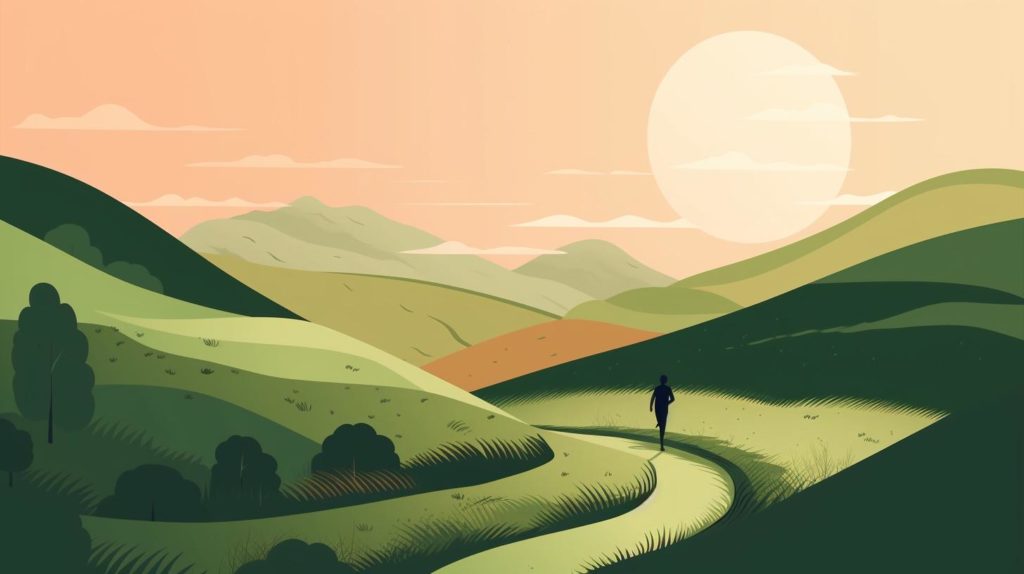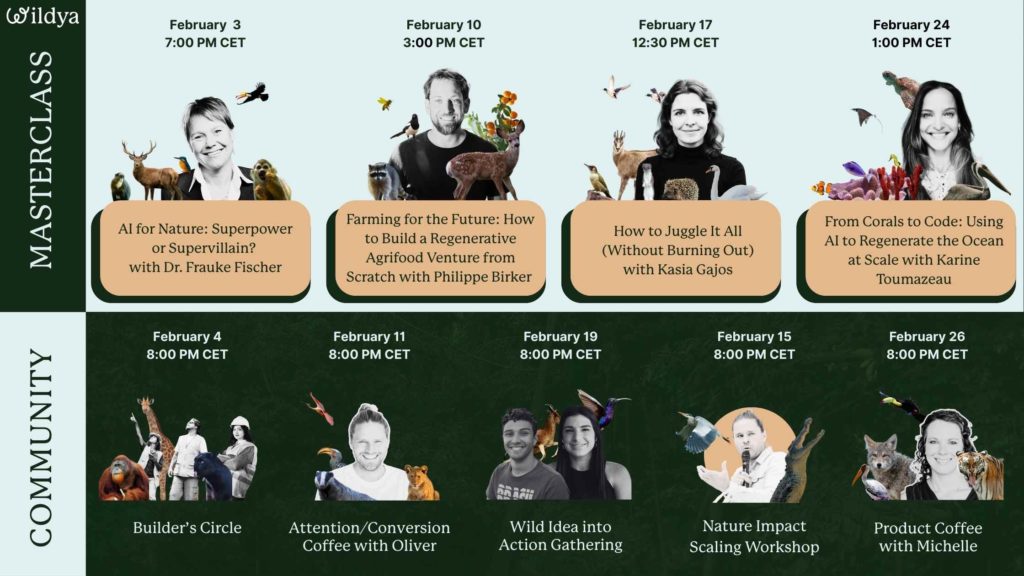‘Biodiversity’: maybe it’s a term that’s new to you, or perhaps it’s one that you’re already fairly familiar with. Either way, it’s a concept we all need to understand. Because all life on Earth depends on it – including us.
Yet, biodiversity is often misunderstood, overlooked, or simply not talked about enough. So, what exactly is it? How does biodiversity benefit humans? And why should we care about biodiversity loss and its impact on humanity?
Let’s dive in.
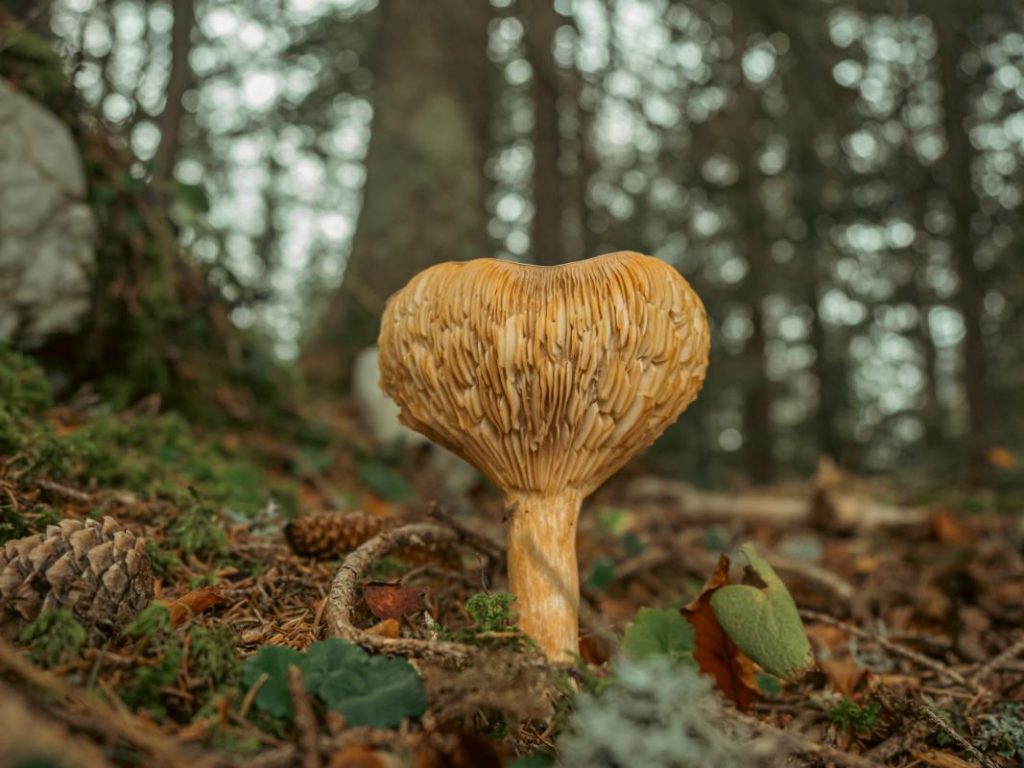
What is biodiversity? A quick recap
Maybe you already guessed from the name, but ‘biodiversity’ is short for ‘biological diversity.’
It refers to the variety of life on Earth in all its wild and wonderful forms (including plants, animals, fungi, and microorganisms), their genetic material, and the ecosystems they create.1
Biodiversity is measured at three interdependent levels:
🧬Genetic diversity: the unique variety of genes within a species. This is essential for adaptability and survival, helping populations respond to environmental changes and resist diseases. These are for example eye color, size & co.
🪲Species diversity: the variety of species in a habitat or ecosystem and how evenly they’re distributed. That’s your giraffes, lions, elephants & co.
🏞️Ecosystem diversity: the variety of ecosystems in a particular area and the interactions between organisms and their environments. These ecosystems may be vast forests or small ponds, each with their own unique interconnections and processes.
Protecting biodiversity means safeguarding all of these interconnected layers – because when one level is damaged, the others all feel the strain.
🌱Join the Wildya herd and take action for biodiversity.
How does biodiversity benefit humans?
OK, we know what biodiversity is, but why should we care? Essentially, what has biodiversity even done for us lately?
Actually, it’d be far quicker to list what biodiversity hasn’t done for us (both lately and historically). But let’s look at some of the key ways biodiversity benefits humanity.
Climate stabilization
A hugely important benefit of biodiversity is that it stabilizes our climate. Wildlife protects stored carbon and supports the storage of more carbon in soils and sediments.2 Intact forest, grassland, and ocean ecosystems absorb carbon, slowing down the impacts of global warming.
And it’s not just about storage. Healthy mangroves and coral reefs shield communities from the severe weather events intensified by climate change. During storms and storm surges, they absorb wave energy, reducing its impact on coastlines. For example, when a super cyclone hit Odisha, India, in 1999, villages with intact mangrove forests suffered fewer casualties than areas without.3
Food production
Biodiversity feeds us. In fact, every meal we eat relies on it. Bees4, insects, birds, and bats pollinate our global food crops (a whopping >75% of these depend or partly depend on animal pollination!)5 Microorganisms in our soil keep it fertile and productive, and more than 3.3 billion people get at least 20% of their daily animal protein intake from the fish in our oceans.6 Without it, the world’s food systems would entirely collapse.
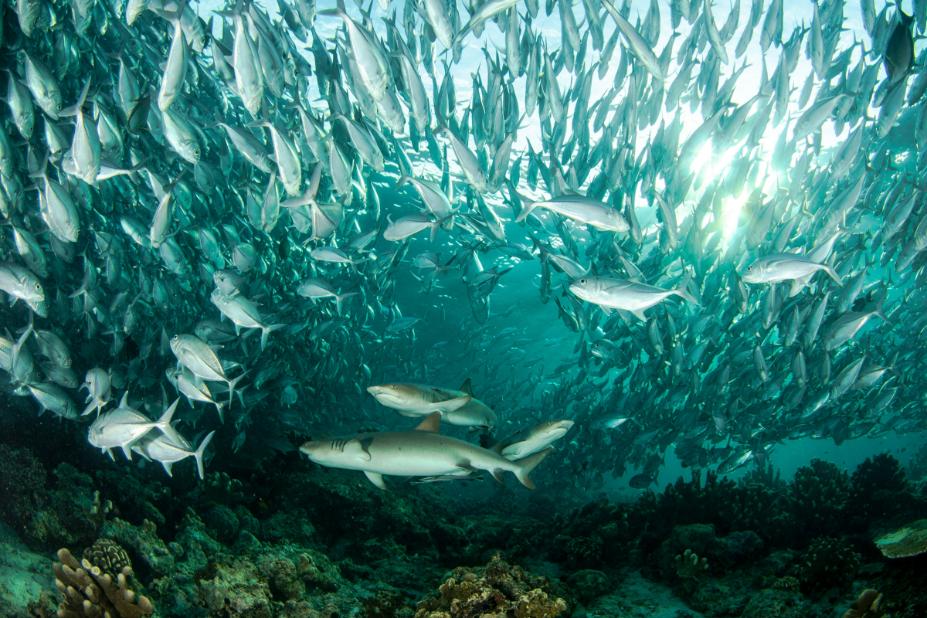
Medicines, well-being, and disease limitation
It keeps us healthy. For example, did you know that over 50% of our modern medicines come from nature?7 Our forests, oceans, and other ecosystems also hold the potential for future life-saving discoveries. And in terms of our mental and physical well-being, it’s got our backs too. Biodiverse green spaces reduce stress and boost moods,8 and a recent study about the state of our oceans has found that Marine Protected Areas improve our health and well-being too. Biodiversity even limits the spread of diseases!9
Supports economies and livelihoods
Simply put, biodiversity is the very backbone of our economy. Livelihoods like farming, fishing, and tourism depend directly on biodiversity. However, industry supply chains also depend on biodiversity. In fact, over half the world’s total GDP is moderately or highly dependent on nature and its services.’10 Its loss puts lives, communities, and jobs at risk.
Natural systems and services
It does the heavy lifting for us. Biodiversity powers clean water, pollination, fertile soil, and waste decomposition – all things that we greatly rely on daily without realizing it.
Considering these benefits, it’s quite clear that these aren’t ‘nice to haves’; they’re fundamental essentials we all rely on. So, biodiversity isn’t just about saving endangered species but rather a matter of survival for us all. Unfortunately, many of us take these benefits and biodiversity for granted.
Biodiversity loss and its impact on humanity: what’s the link?
Now we know how important biodiversity is, it’s time to face the elephant in the room (or rather, the African elephant missing from the savanna)…
🐘 We are facing a biodiversity crisis.
The 2024 Living Planet Index reports a 73% average decline in wildlife populations since 1970. And if we want to point fingers at the culprits, we’re going to need a mirror. As, *shocker*: the biggest threat to biodiversity is us humans.
Human activities like deforestation, overfishing, pollution, and climate change are pushing ecosystems to their limits. And, as species are lost to a particular area – or wink out of existence entirely, what are the inevitable consequences for us?
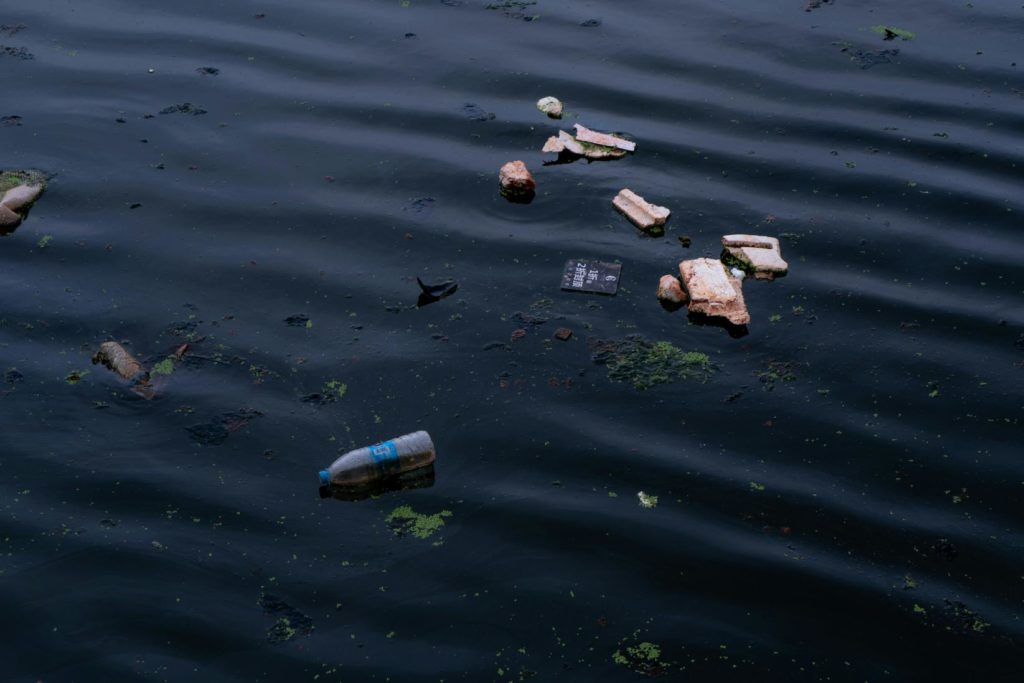
Worsening climate change
When ecosystems are destroyed, they stop absorbing carbon and instead release it, accelerating global warming. One example is the Amazon Rainforest, which, as a result of deforestation and climate change, has started to emit more carbon than it absorbs.11
Fragile food systems
The loss of pollinators, soil degradation, and collapsing fisheries mean less food for everyone. For example, in Bourgogne-Franche-Comté, France, a decrease in pollinators over the past 40 years has led to reduced yields for blackcurrant producers12 and the Baltic Sea now faces a collapse of its fish stocks13 – meaning less cod, herring, and salmon on our plates.
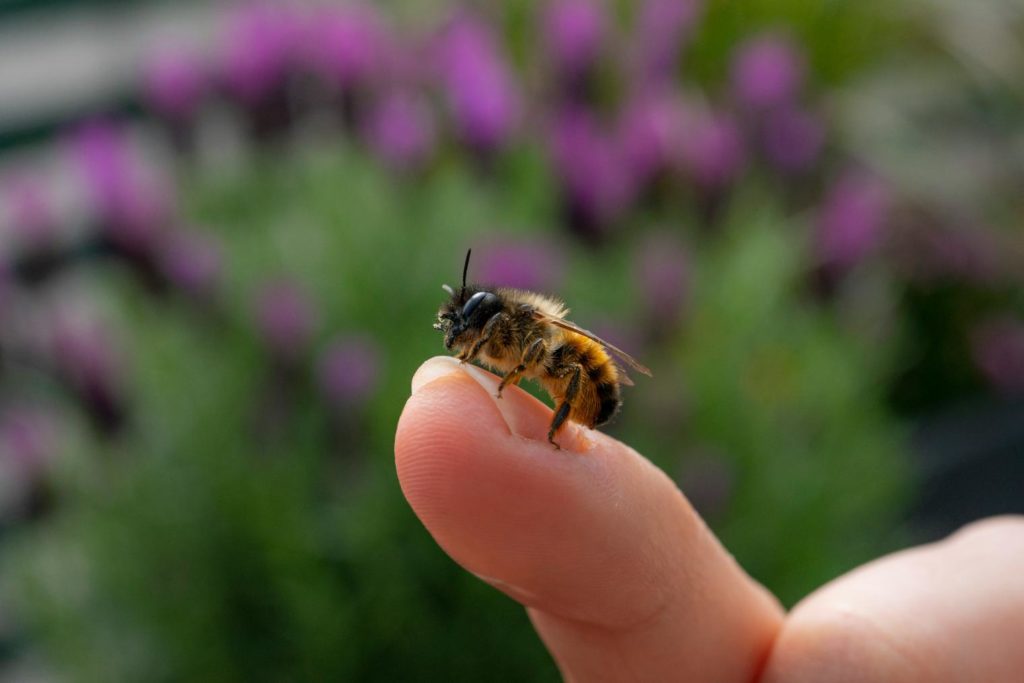
Increased health risks
Biodiversity loss poses serious health risks. As we destroy habitats, humans and wildlife are forced closer together, increasing the risk of zoonotic infectious diseases (illnesses caused by pathogens transmitted between animals and humans). We also lose the well-being benefits that biodiverse green spaces offer us and any potential cures and medicines that nature may offer us that we haven’t discovered yet.
Economic instability
Industries like agriculture, tourism, and fishing greatly depend on nature. Sadly, when ecosystems fail, so too do jobs and economies. Take Newfoundland’s Cod Collapse – which saw the biomass of the species drop by 93% from 1962 to 1992 due to overfishing, and put 30,000 people out of work.
Absence of biodiversity’s helping hands
Without biodiversity providing essential ‘natural services’ like clean water, pollination, fertile soil, and waste decomposition, we’re going to be in big trouble, fast.
Because we’re intrinsically linked and entirely dependent on it, the ripple effects of biodiversity loss impact everyone. The fact that biodiversity loss is human-driven is a wake-up call, but it also gives us the power to reverse course.
Which actions can you take to protect biodiversity and build a wilder world?
You may be feeling fairly gloomy after that, but don’t let it get you down; there’s plenty we can do to take action, protect biodiversity, and encourage its comeback. Here’s how you can help.
Join biodiversity-boosting communities like Wildya
Be part of a global movement working to protect biodiversity. At Wildya, we’re restoring nature by empowering people to reduce their negative impact and boost their positive impact.
👉 Learn more about the Wildya herd and its actions!
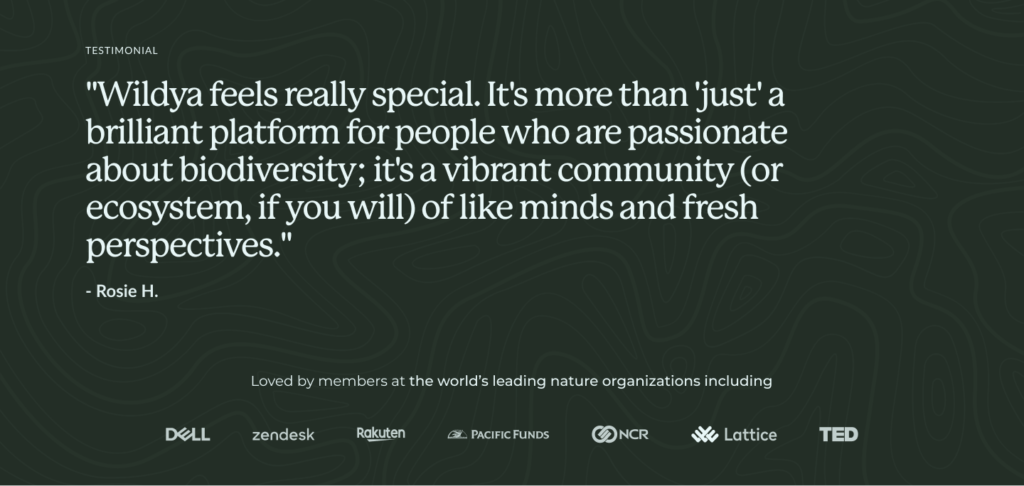
Choose sustainable options
Support eco-friendly farming practices by opting for seasonal, local, organic, or sustainably produced food. Eat less seafood, and avoid single-use plastics – whether they come in the form of packaging or products.
Get involved with ecosystem restoration efforts
Track down and join local conservation projects or support rewilding projects. You can even take part in guerilla gardening and scatter native wildflower seeds in sparse spots. Every little helps.
Switch to a nature-nurturing job
Switching to a nature-focused job can make a real difference for biodiversity. Whether you’re directly restoring ecosystems or supporting nature in a wider way, your career is a powerful tool for impact. We spend a third of our lives at work. That’s 90,000 hours you could put towards boosting biodiversity.
👉 Learn more about working for nature in our Conservation Jobs to Build a Career & A Wilder World blog post, or join our “How to Get a Nature Job” course.
Speak up for biodiversity
Share what you’ve learned about biodiversity with others. The more people are aware of its importance and the issues around biodiversity loss, the better! Advocate for stronger policies that protect the species and ecosystems that we all rely on.
Biodiversity loss may feel overwhelming, but we can make a difference together.
Protecting biodiversity = protecting ourselves
How does biodiversity benefit humans? The answer is we couldn’t live without it! It’s the Earth’s life-support system, giving us food, clean water, medicines, and a stable climate. But because of human activities like deforestation, overfishing, pollution, and climate change, it’s under threat. And we really can’t afford to ignore it. The consequences of biodiversity loss and its impact on humanity would be devastating.
But there is hope.
By making more conscious decisions about what we buy, helping local and global restoration efforts, joining biodiversity-boosting communities, working for nature, and advocating for positive change, we can help undo the damage.
At Wildya, we believe in protecting biodiversity and restoring the wild connection between us and nature. Become a Wildya+ member, and let’s rebuild a biodiverse world together.
Sources:
1 What is Biodiversity?, The Australian Museum.
2 Animating the Carbon Cycle, Yale School of the Environment and the Global Rewilding Alliance.
3 Mangrove Forests Save Lives In Storms, Study Of 1999 Super Cyclone Finds, Science Daily.
4 Biodiversity: Protecting bees and insects, German Federal Ministry of Food & Agriculture.
5 UN Report: Nature’s Dangerous Decline ‘Unprecedented’; Species Extinction Rates ‘Accelerating’, UN.
6 A Healthy Ocean Depends on Sustainably Managed Fisheries, The Nature Conservancy.
7 Natural products derived from plants as a source of drugs, C. Veeresham.
8 Not All Green Space Is Created Equal: Biodiversity Predicts Psychological Restorative Benefits From Urban Green Space, E. Wood, A. Harsant, M. Dallimer, A. Cronin de Chavez, R.R.C McEachen & C. Hassall.
9 How much does biodiversity loss contribute to the spread of new infectious diseases?, Charité.
10 Businesses more dependent on biodiversity than expected, Convention on Biological Diversity.
11 Climate change: Amazon regions emit more carbon than they absorb, BBC.
12 Why biodiversity collapse leads to lower agricultural yields (In French), Le Monde.
13 The Baltic Sea faces a collapse of its fish stocks, Le Monde.

